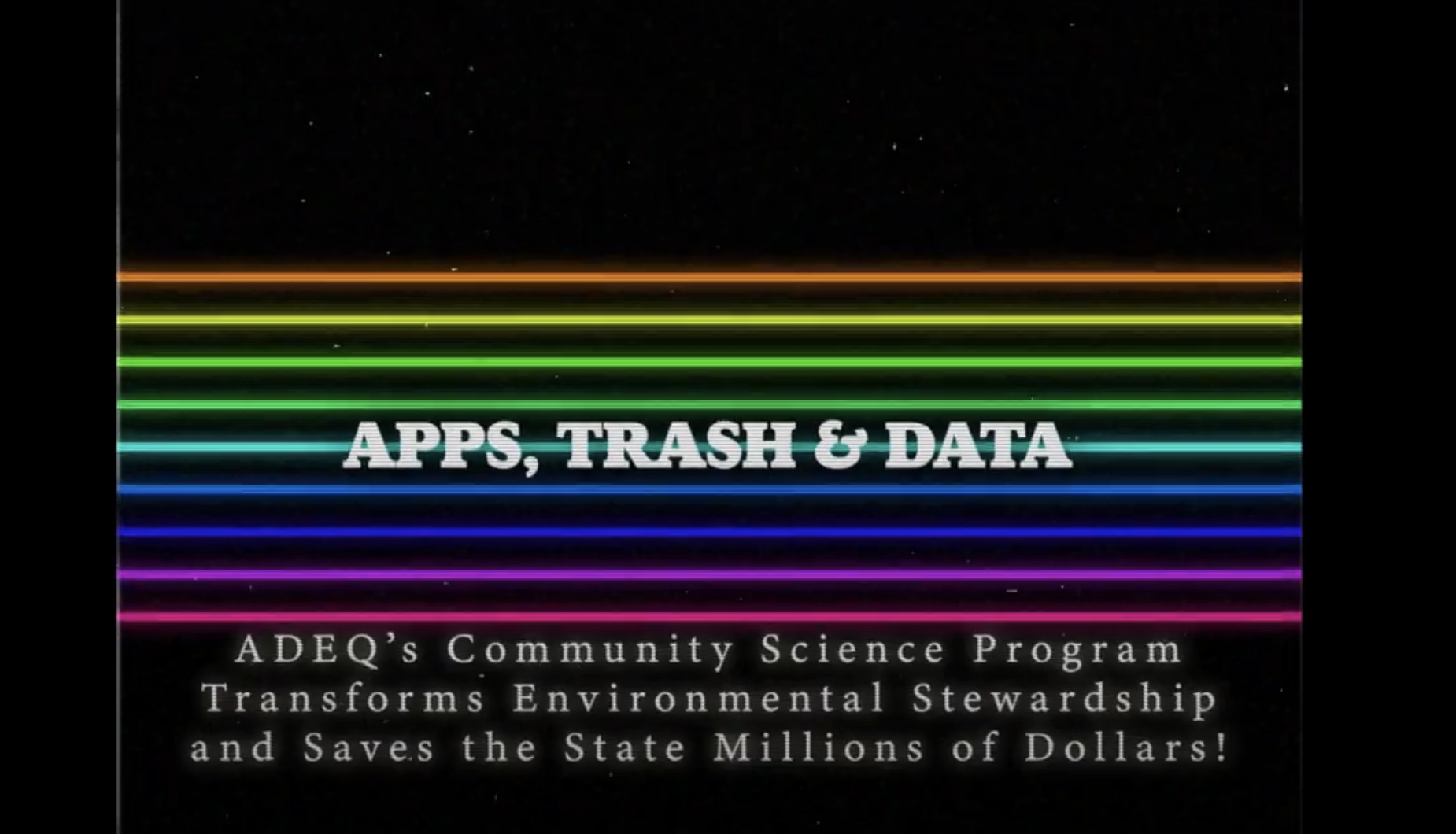Arizona Community Science Alliance
Our Flag Program enables local communities to participate and share daily air quality forecast information by flying colorful flags that indicate the expected air quality for the day. The Flag Program provides participants with a choice of physical and/or digital flags, educational materials and resources, and an opportunity to increase the public’s awareness of air quality. The Flag Program is designed for specific areas with air quality not, or close to, meeting national standards. These areas must also have air quality forecasts for ozone, PM10 (dust), and PM2.5 (smoke, soot) in Arizona | Learn More >
Ways ADEQ Can help:
Do you want to fly flags at your school to raise air quality awareness? Get started by visiting our Flag Program webpage | Learn More >
Smartphone users can easily submit photos and data for any stream, wash, river or lake in the state within a few minutes by answering “yes” or "no" to questions about the water, wildlife and trash in the area and submit your data | Learn More >
Flow monitoring, using game cameras, helps ADEQ scientists understand a waterbodies flow regime. This volunteer opportunity is a year-long commitment, collecting daily flow images on a waterbody. We loan out equipment and offer training on installation and data retrieval. RTo schedule a time to pick up the equipment, email the program coordinator | Email >
This Pocket Lab lesson walks students through a hands-on learning opportunity about air quality topics and data collection. It’s geared towards high school students, but could be adjusted for other grade levels. We offer Air Quality Pocket Labs Monitors on loan for classroom use | Learn More >
Ways ADEQ Can Help:
Do you need equipment for your classroom? ADEQ offers Air Quality Pocket Labs Monitors on loan.
Our stream monitoring programs collect data to help protect and enhance our waterways. We partner interested volunteers with established community science groups around the state. We loan out scientific equipment, provide training, and assist with data quality checks. Our volunteers’ sampling work has helped remove nine waterbodies from EPA’s impaired waters list | Learn More >
You can clean up trash in and around waterways to help reduce waste from animals attracted by the trash we leave behind. The more animals come "do their business" around our fun and beautiful waters, the more E. coli occurs in the water, which can make humans and animals sick. That's part of why it's so important to pack out your trash.
Our trash clean-up events are essential for maintaining the cleanliness and health of our waterways and land. These events are self-planned so that anyone can plan a clean-up anywhere by a waterbody at any time. Some people go out by themselves, while others get groups together. AZ Community Science Alliance offers trash bags, buckets, trash grabbers, and gloves | Learn More >
Wet-dry mapping is an essential part of monitoring Arizona's streams. Volunteers help us collect data about the presence and flow of water in different streams during different times of the year. As a wet-dry mapping volunteer with AZWW, you're helping us study and protect water quality in our state | Learn More >
ADEQ supports environmental education through various options. Schools can request access to scientific equipment and lesson plans or have scientists attend a career fair or STEM event.
Ways ADEQ Can Help:
Are you hosting a STEM event and would like assistance from ADEQ? ADEQ can set up an interactive booth with hands-on educational activities to help the public learn about protecting the environment.
Are you interested in joining a scientist in the field or in the lab? We will try to partner your request with an ADEQ staff member for a hands-on experience.
Career Fair Attendance
- Are you hosting a career fair? ADEQ can set up an interactive booth and talk about environmental careers.
Earth Day Event
- Are you hosting an earth day event? ADEQ can set up an interactive booth with hands-on educational activities to help the public learn about protecting the environment.
School Presentation Request
- Are you interested in having an environmental professional come to your location and present on an environmental topic? We will match ADEQ subject-matter experts with the topic of interest and coordinate a virtual or in person presentation.


